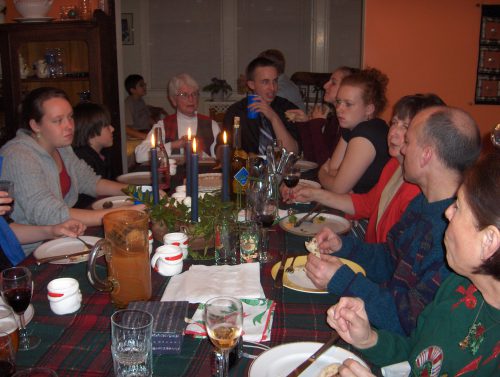A Revitalized Church
PEP Newsletter
Ideas For Your Parish
_______________________________________________________________________ November, 2023
Letter to the “People of God”
Justin McLellan, a reporter for the Catholic News Service who attended the Synod in Rome, wrote in the Oct. 25, 2023 edition of that publication, “The Catholic Church must continue discerning its future by listening to everyone, starting with the poorest and excluded.” The reporter also mentioned, “It means listening to those who have been denied the right to speak in society or who feel excluded, even by the Church.” His report made special reference to the need for listening to the laity, catechists, children, the elderly, families and those who want to be involved in lay ministries and all who “participate in discernment and decision-making structures of the church.”
Pope Francis told those attending the Synod, “Trust the fidelity of the people they listened to in preparation for the Synod. . . . One of the characteristics of this faithful people is its infallibility, yes, it is infallible in ‘credendo,’ in belief, as the Second Vatican Council taught. . . . The faithful people have a soul, a conscience and a way of seeing reality.”
Method Used in the Small Groups
The processed used at the Synod was spelled out by Fr. James Martin, SJ. (America Media, Oct. 30, 2023) The first step was prayer. Everything was grounded in that, and each small group frequently paused during their discussions to reflect on what they heard from one another. Next, everyone went around the table and for three minutes (strictly timed), each shared their response to the question that was being discussed. No one interrupted and everyone was required to listen – this was part of the ground rules for discussion.
In the second round of discussion, after more prayer, people shared what they had heard, what moved them and what resonances they felt in the discussion. Where was the Spirit moving them? This was all guided by a group facilitator who allowed no interruptions while people were talking. Finally, at the third round of the small group, there was a freer interaction during which people could answer questions, share experiences and challenge one another. As the discussion progressed, a group secretary wrote down the convergences, divergences, tensions and questions.
At the conclusion of the small group discussions, a reporter from each group presented the table’s results to the plenary session. There was no need to force a false consensus when there wasn’t one; rather any differences and tensions were honestly communicated to the large group. This method meant that everyone was listened to, everyone got a chance to contribute and an honest summary was offered for further reflection.
A Synod in the Parish
The above process can be easily adapted for a parish-wide Synod by following these steps:
- The pastor, staff and lay leaders choose a topic for discussion, such as reaching out to young adults or inviting back those who had stopped attending the parish during Covid-19.
- A time is chosen, such as a Saturday morning or Sunday afternoon, for a parish-wide “Synod” to which all parishioners are invited to attend a discussion related to the chosen topic. A wide variety of people would be personally invited in order to assure that the gathering represents a cross-section of the parish.
- The first step is to form random groups of five to eight people each to participate in the same small-group process used at the Synod in Rome described above.
- The results from the small group discussions are published for all the parishioners can see. As is happening in Rome, a follow-up parish Synod is planned to take place within six months.


